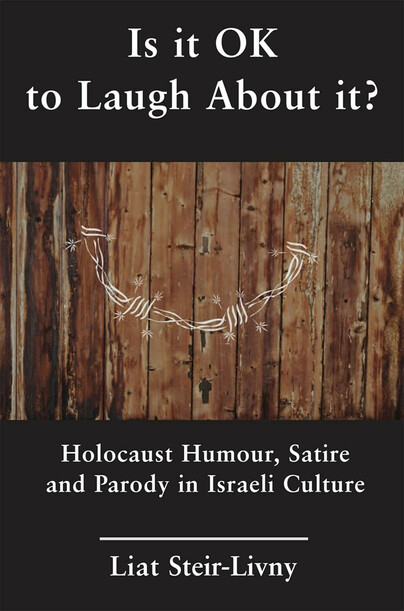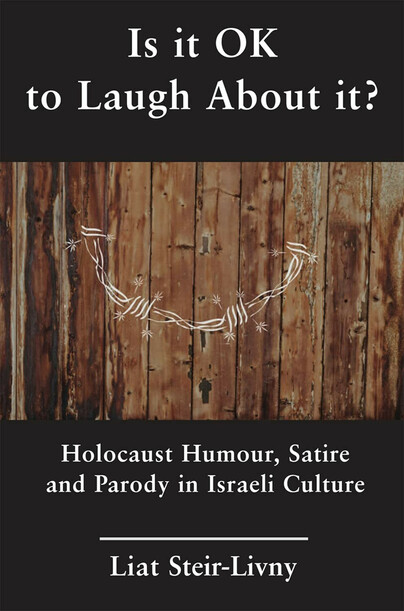

Pages: 208
ISBN: 9781910383353
Pub Date: May 2017
Imprint: Vallentine Mitchell
Price:
£55.00
In stock
Pages: 208
ISBN: 9781910383490
Pub Date: May 2020
Imprint: Vallentine Mitchell
Price:
£20.00
This book will be reprinted and your order will be released in due course.
Description:
For many years, Israeli culture recoiled from dealing with the Holocaust from a humorous or satirical perspective. The perception was that a humorous approach might threaten the sanctity of its memory, or evoke feelings of disrespect towards the subject and hurt Holocaust survivors' feelings. But, from the 1990s, a new unofficial path of commemoration has been taking shape. Texts that combine the Holocaust with humour, satire, and parody are a major aspect of it, but this remains controversial. Often, Holocaust humour is perceived as part of a dangerous process that normalizes Nazism and Hitler. In opposition to these ideas, author Steir-Livny claims that in Israel, a unique post-traumatic society where the trauma lives as an integral part of the present, Holocaust humour in Hebrew functions as an important defence mechanism. The book argues that Holocaust humour, satire, and parody rebel against the way this trauma affects Israeli society in the present by challenging and deconstructing the fear. Is It Ok to Laugh About It? shows that paradoxically, Holocaust humour also strengthens the dominance of the trauma in the present by inserting it even more into everyday life and popular culture. Thus, Holocaust humour, satire, and parody in Israel are a double-edged sword: on the one hand, they function as an attempt to fight the acting out of the trauma in Israeli society but, on the other, they strengthen certain elements of it. There is a contradictory process of dissociation and assimilation occurring at the same time, which attests to the dominance of the trauma in the Jewish-Israelis' identity. This innovative and intriguing analysis will challenge the borders of Holocaust research and commemoration. *** "'Is It OK to Laugh About It?' offers an excellent analysis of Israeli culture and its approach to humor. Steir-Livny's writing style is scholarly, but his book will appeal to general readers who are interested in the subject matter. What he offers is a glimpse of
Holocaust humour, satire, and parody are sensitive and complex issues. For many years, Israeli culture recoiled from dealing with the Holocaust from a humorous or satirical perspective. The perception was that a humorous approach might threaten the sanctity of its memory, or evoke feelings of disrespect towards the subject and hurt Holocaust survivors' feelings. Official agents of Holocaust memory continue to follow this approach. But, from the 1990s, a new unofficial path of commemoration has been taking shape. Texts that combine the Holocaust with humour, satire and parody are a major aspect of it, but this remains controversial. Often, Holocaust humour is perceived as part of a dangerous process that normalizes Nazism and Hitler. In opposition to these ideas, Steir-Livny claims that in Israel, a unique post-traumatic society where the trauma lives as an integral part of the present, Holocaust humour in Hebrew functions as an important defence mechanism. The book argues that Holocaust humour, satire, and parody rebel against the way this trauma affects Israeli society in the present by challenging and deconstructing the fear. The book shows that paradoxically, Holocaust humour also strengthens the dominance of the trauma in the present by inserting it even more into everyday life and popular culture. Thus, Holocaust humour, satire, and parody in Israel are a double-edged sword: on the one hand, they function as an attempt to fight the acting out of the trauma in Israeli society but, on the other, they strengthen certain elements of it. This is a contradictory process of dissociation and assimilation occurring at the same time, which attests to the dominance of the trauma in the Jewish-Israelis' identity. This is the first comprehensive research on contemporary Holocaust humour in Israel. The innovative and intriguing analysis challenges the borders of Holocaust research and commemoration.

